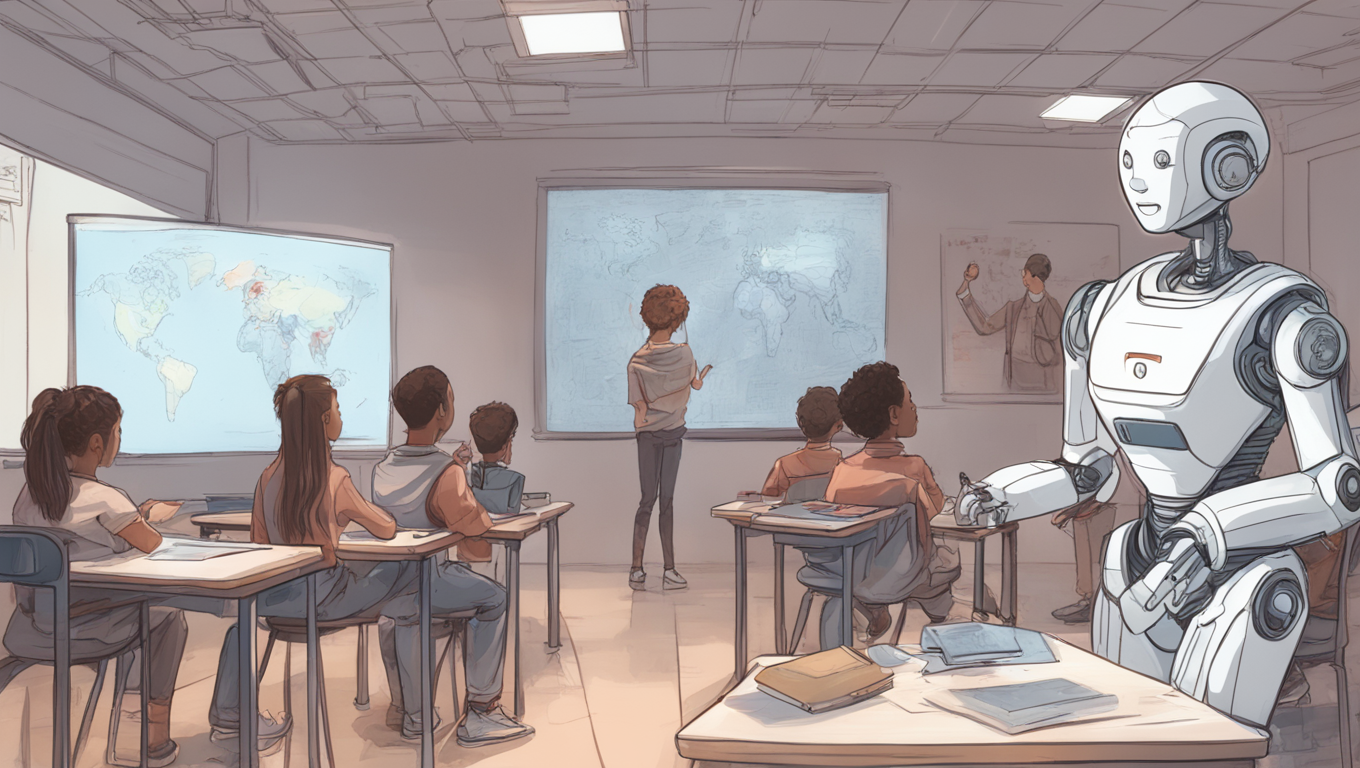El Segundo Unified School District (ESUSD) has launched a new AI Policy Lab in partnership with the EdSAFE AI Alliance. The lab aims to promote the safe and ethical use of artificial intelligence (AI) in educational settings. It is part of a nationwide network of similar policy initiatives, including the New York City Public Schools AI Policy Lab.
Superintendent Melissa Moore emphasized that the AI policy initiative underscores the district’s commitment to integrating AI in a way that prioritizes their values. The primary objectives of the lab include ensuring equity, safety, ethical practices, effectiveness, and transparency. ESUSD aims to involve a wide array of perspectives, including policymakers, industry experts, educators, students, and families, to collaboratively develop AI strategies and policies that align with the community’s unique needs and principles.
The AI Policy Lab will provide ESUSD with policy recommendations and educational resources for teachers, students, and parents. The lab will also facilitate ongoing refinement of policies to ensure they are in line with practical applications, with a particular focus on community, parent, and student engagement.
The national network, led by the EdSAFE AI Alliance, aims to address the challenges and embrace the opportunities arising from the rapid introduction of AI in education. The network consists of 12 districts throughout the country, working together to develop a comprehensive “policy stack” that includes acceptable use policies, parent communication and consent policies, and professional development resources.
In another development, Numerade, an AI-powered online STEM learning platform, is offering free access to its Numerade Plus subscription for all K-12 students and teachers in the Los Angeles Unified School District (LAUSD). The initiative comes as the effects of pandemic-related learning losses continue to manifest, with recent data showing that most California students do not meet grade-level standards in math and reading.
Numerade’s CEO and co-founder, Nhon Ma, who grew up in LA and witnessed education inequity firsthand, believes that everyone deserves a quality education regardless of their background. Numerade Plus provides students and teachers with access to a full suite of education features, including textbook video solutions, expert-verified answers, video courses, custom quizzes, unlimited “Ask an Expert” questions, and an AI chatbot tutor.
In addition to supporting students, Numerade Plus also helps teachers save time with lesson plans, quizzes, and grading assignments. This initiative aims to bridge the education divide and reduce barriers by offering premium educational features for free to the LAUSD community.
In the STEM field, staying up-to-date with the latest tools and techniques is crucial. The AI boom has made coding and data management skills integral to success. However, going back to school is not always feasible for scientists. Short training programs like webinars and boot camps have become popular alternatives, but they often have significant shortcomings and may exclude learners of all abilities and circumstances.
To address this challenge, an interdisciplinary and international team convened at the Cold Spring Harbor Laboratory’s Banbury Center to develop a teaching framework called the “Bicycle Principles.” The framework aims to make short STEM training effective, inclusive, and scalable.
The Bicycle Principles originated from a meeting at the Banbury Center think tank, where the world’s leading experts in short-format education gathered to identify the field’s biggest issues and propose solutions. The framework consists of two sets of principles: the Core Principles focus on effectiveness and inclusivity, while the Community Principles revolve around reach, accessibility, and sustainability.
Jason Williams, Assistant Director of Diversity and Research Readiness at the Cold Spring Harbor Laboratory, believes that raising awareness of the challenges in professional development can lead to meaningful solutions. The goal of the Bicycle Principles is to provide scientists with the necessary tools to achieve their career goals and increase the impact of their work.
Overall, these initiatives in AI policy and STEM training demonstrate a commitment to leveraging AI in education effectively and inclusively. With the establishment of the AI Policy Lab and the offering of free access to Numerade Plus, educators and students are provided with valuable resources to enhance learning outcomes and bridge gaps in education. The Bicycle Principles also offer a framework to improve short-term STEM training and ensure that scientists can continue to develop their skills throughout their careers.





Use the share button below if you liked it.